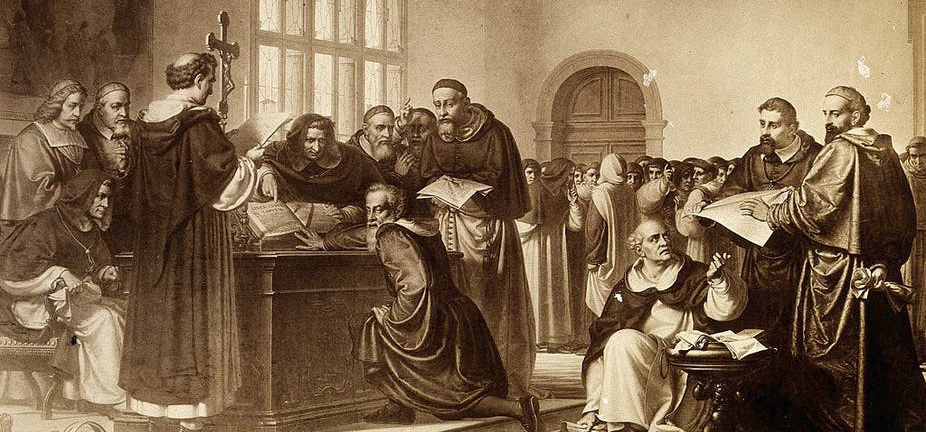
When critics attack the Church one of their favourite charges is the alleged scandal of how the Church treated Galileo and his scientific ideas. Though it will shock you much of this allegation is baseless even though sincerely held by prestigious thinkers!
So, Bertrand Russell, in his seminal History of Western Philosophy, opined: “Galileo, as everyone knows, was condemned by the Inquisition [which was] successful at putting an end to science in Italy…but it failed to prevent men of science from adopting the heliocentric theory, and did considerable damage to the Church by its stupidity.” (p.556)
George Bernard Shaw, in like manner, said that scientific education teaches that “Galileo was a martyr, and his persecutors incorrigible ignoramuses.” (Saint Joan, p.17)
The popular science writer Patrick Moore informs: “The Roman Catholic Church attacked Galileo because the [heliocentric] theory was not reconcilable with certain passages of the Bible. As a consequence, poor Galileo spent most of his life in open conflict with the Church.” (A Beginner’s Guide to Astronomy, p. 12)
Despite the prestige of these men they are presenting warped versions of the truth. This reminds me of the mischievous aphorism of one of my Jamaica Theological Seminary batchmates [N.W] of the class of 1978 who, after a discussion of contrary views on an issue, pronounced “Clinton, some writers are scholars some are simply school-asses!” Obnoxious but not untrue.
Without doing all of your homework for you I encourage you to read critically Philip Sampson’s 2001 book, 6 Modern Myths About Christianity & Western Civilization and the literature he recommends.
Sampson raises the overlooked point of why Galileo is seen as the hero/villain of the plot re religion vs. science when surely the hero/villain ought to have been Canon Nicolaus Copernicus who died some 20 years before Galileo was born!
Unknown too or forgotten was the fact that the prevailing astronomical view during the time of Galileo/Copernicus was that of Aristotle who “taught explicitly [not the Bible] that ‘everything moves around the earth’.” (Sampson, p.39). Galileo’s 1632 book that led to his trial was Copernican in essence!
The popular belief that Galileo was held in dank prison cells and tortured are gross exaggerations or plain myths. Sampson quotes philosopher A.N. Whitehead approvingly as saying: “Galileo suffered an honourable detention and a mild reproof, before dying peacefully in his bed.” (p.38) As Bertrand Russell once said “In all affairs it’s a healthy thing now and then to hang a question mark on the things you have long taken for granted.”
